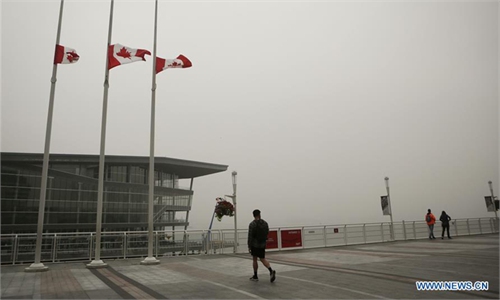
Illustration: Tang Tengfei/GT
According to statistics from the Canola Council of Canada, the value of Canadian canola seed export to China recorded $650 million in 2019 and $1.13 billion in 2020, down from $2.27 billion in 2018. In March 2019, China suspended imports of canola seeds from two Canadian companies after detecting dangerous pests on multiple occasions. The decision made by Chinese customs on canola seed imports from Canada is based on laws, regulations and international practice.
Despite the suspension, China didn't ban all canola seed shipments from Canada, even though customs authorities tightened inspections on the commodity for the purpose of safeguarding the health and safety of the people and the ecological environment in China. Moreover, trade data showed China remained the largest export market for Canadian canola seeds in 2020.
Against this backdrop, Canada's attempt to escalate its dispute surrounding canola seed trade with China seems more like a signal of igniting more trade tensions against China at the WTO. And given the close ties between the US and Canada, one has to wonder whether the latest move by Ottawa is politically motivated, and may be seen as a political stunt to reaffirm its stance with allies.
From an economic point of view, the trade friction over canola seed hasn't affected the overall rise in bilateral trade between China and Canada. In the first five months of this year, China-Canada trade soared 44.3 percent year-on-year to hit $29.88 billion, with Canadian imports to China surging 44.9 percent, showed by statistics from Chinese customs authorities.
If Canada deliberately exaggerates and plays up the canola seed dispute to send the signal that bilateral trade relations are strained between the two sides, it would be regrettable for any political show to affect the market confidence in an uncertain environment.
In the end, it is undeniable that there is still potential in China-Canada economic and trade cooperation, but political stunt is not the way to tap that potential in any case.



